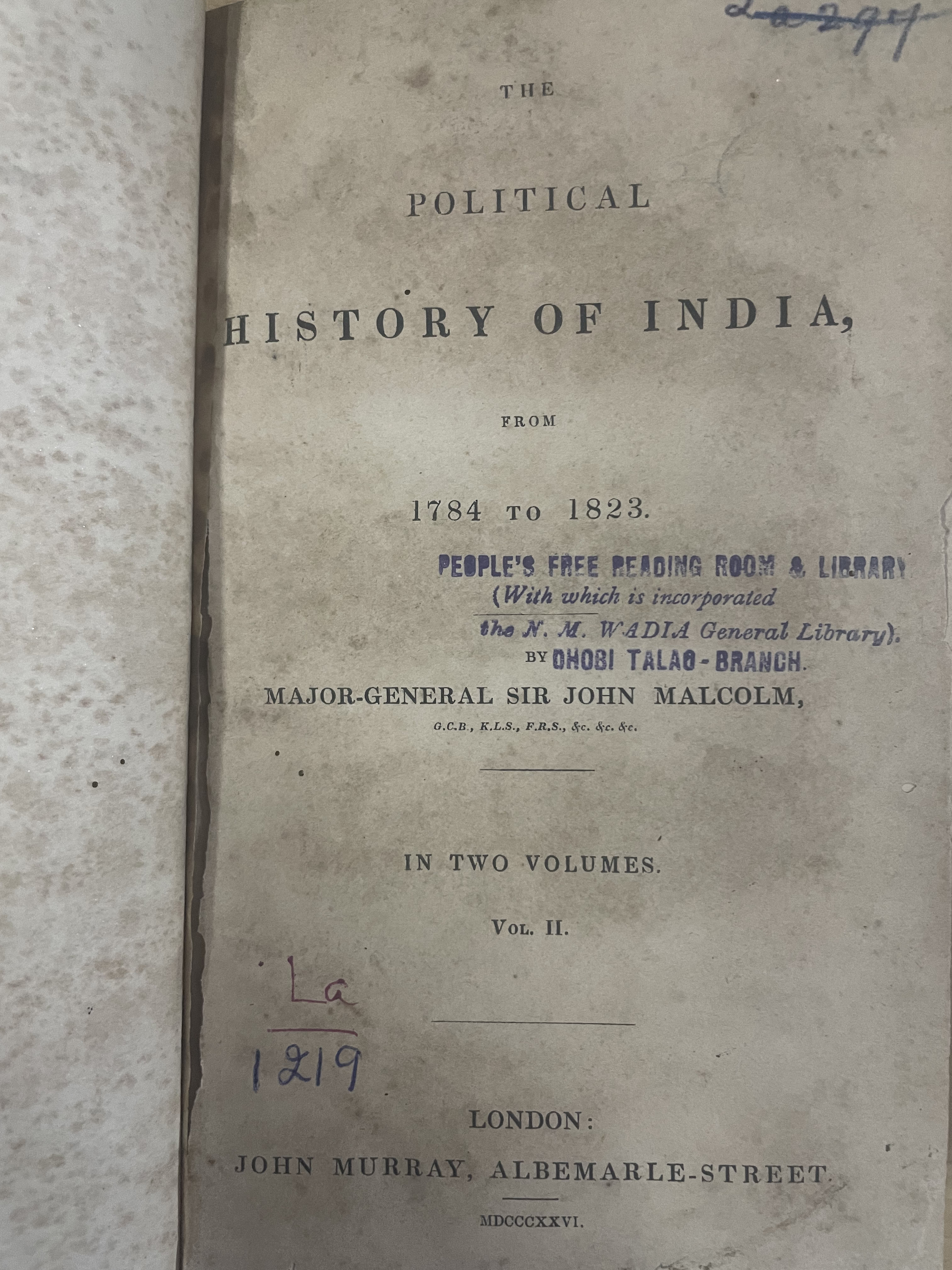The Political History Of India from 1784 to 1823 Vol II

About
Summary
Exquisite
TOC
Details
Related
URL
Images
Overview
The Political History of India from 1784 to 1823 by Major-General Sir John Malcolm offers a detailed account and analysis of British governance and political events in India during a transformative period. Malcolm, a Scottish soldier, diplomat, East India Company administrator, and historian, leverages his extensive experience in India to provide insights into the administrative strategies, key figures, and significant events that shaped British India.The Political History of India" examines the administrative, political, and military developments in India under British rule from 1784 to 1823. Malcolm’s work reflects his deep engagement with the key issues and figures of the time, offering both a historical record and an analysis of the evolving dynamics between the British and Indian entities. The book covers the policies of the East India Company, the roles of significant administrators, and the impacts of British rule on Indian society.While specific details about the contents of Volume 2 are not available in the search results, it can be inferred that it continues the detailed examination of political events and administrative policies within India during the specified period (1784-1823). Given Malcolm's focus, the volume likely includes in-depth analyses of regional developments, military engagements, and the evolving relationships between the British and various Indian states.
Importance of Book
Comprehensive Historical Account: The book offers a comprehensive historical account of British India during a critical period, providing detailed information about political events, administrative policies, and key figures.
Authoritative Perspective: Written by a high-ranking British official with extensive experience in India, the book provides an authoritative perspective on the challenges and achievements of British rule.
Influence on Policy and Perceptions: Malcolm's analysis influenced British policy-making and shaped perceptions of India, contributing to the broader discourse on colonialism.
Scholarly Resource: The book remains a valuable resource for scholars and historians studying British India, offering insights into the complexities of colonial governance and its impact on Indian society.
Key Themes
British Administration: The book explores the structure and functioning of the British administration in India, including the roles of key officials and the policies implemented by the East India Company.
Political Relations: It examines the relationships between the British and Indian states, focusing on treaties, conflicts, and diplomatic engagements that shaped the political landscape.
Impact on Indian Society: Malcolm analyzes the effects of British rule on Indian society, including economic, social, and cultural changes brought about by colonial policies.
Cultural Significance
Historical Documentation: The book serves as a detailed historical record of a crucial period in British India, capturing the political and administrative processes.
Insight into Colonial Governance: It provides insights into the strategies and challenges of colonial governance, offering a British perspective on the administration of India.
Authoritative Analysis: As a high-ranking official and diplomat, Malcolm’s analysis carries weight, providing a valuable interpretation of the events and policies of the time.
Understanding British Perspective: The book reflects the views and attitudes of British administrators towards India and its people, contributing to a broader understanding of colonial ideology.
Effects on Society
Influence on Policy: Malcolm’s writings influenced British policy-making in India, shaping approaches to governance, diplomacy, and social reform.
Shaping Perceptions: The book contributed to shaping British perceptions of India, influencing public opinion and informing debates about colonial rule.
Understanding Historical Context: It helps modern readers understand the historical context of British colonialism in India and its lasting impacts on Indian society and politics.
Debates on Governance: Malcolm’s work indirectly touches on debates regarding the principles of British rule, the role of district officers, and the engagement with neighboring states.
Table of Content
The 1826 edition of \"The Political History of India from 1784 to 1823,\" Volume II, typically includes:IntroductionOverview and objectives of the volume.
Political DevelopmentsDetailed accounts of significant political events and changes in India during the specified period.
Administrative ChangesAnalysis of administrative reforms and governance issues.
Military CampaignsDescriptions of key military operations and conflicts.
Diplomatic RelationsExamination of interactions with other states and treaties.
Economic and Social ConditionsInsights into economic policies and social conditions affecting India.
AppendicesSupplementary materials such as documents, treaties, and maps.
IndexIndex for referencing key topics, figures, and events.
Title
The Political History Of India from 1784 to 1823 Vol II
Author
Maj Gen Sir John Malcolm
Name of Publisher
John Murray Albemarle Street London
Publish Date
1826
Subject
This volume provides a detailed narrative of India\\\'s political landscape, including governance, military activities, and diplomatic affairs during the late 18th and early 19th centuries.
Vintage
1801-1900
Number of Pages
302
Category
History
Sub Category
Social Sciences
Rarity
RARE
